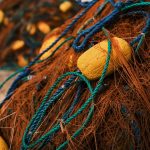Navigating Your Career as a Fisheries Officer: Essential Roadmaps for Success
The role of a fisheries officer is both rewarding and challenging, requiring a blend of scientific knowledge, regulatory understanding, and a deep passion for marine ecosystems. As you embark on this journey, it’s vital to arm yourself with strategies that not only enhance your skills but also pave the way for a successful career.
1. Understanding the Landscape
To truly thrive, one must first comprehend the intricate tapestry of fisheries management. This involves grasping not only the biological aspects of fish populations but also the socio-economic factors that influence fishing communities. Familiarise yourself with key legislation, such as the Marine and Coastal Access Act, and stay informed about current issues like overfishing and habitat destruction.
2. Building a Strong Educational Foundation
Your educational path is paramount. A degree in marine biology, environmental science, or a related field lays the groundwork, but there’s more to it. Engage in specialised training programmes, workshops, or even online courses that focus on fisheries management. The more diverse your skill set, the more adaptable you become in the face of evolving challenges.
3. Gaining Practical Experience
Theory is just the beginning; practical experience is where you truly learn the ropes. Consider internships or volunteer opportunities with local fisheries, conservation organisations, or government bodies. These experiences not only enhance your resume but also provide invaluable networking opportunities. Remember, the connections you forge can be just as crucial as the skills you acquire.
4. Embracing Technology
In this digital age, technology plays an indispensable role in fisheries management. Familiarise yourself with data analysis software, geographic information systems (GIS), and even the latest advancements in fish tracking technology. Being tech-savvy not only improves your effectiveness but also positions you as a forward-thinking professional in your field.
5. Communicating Effectively
A fisheries officer must often bridge the gap between scientific data and public understanding. Hone your communication skills—both written and verbal. Whether you’re drafting reports for stakeholders or engaging with local communities, the ability to convey complex information in an accessible manner is invaluable. Consider public speaking courses or workshops on effective communication.
6. Staying Updated and Engaged
The field of fisheries is constantly evolving, influenced by new research, legislation, and environmental changes. Make it a habit to stay updated on the latest developments through journals, conferences, and online forums. Engage with peers and experts in the field, as these interactions can spark fresh ideas and collaborations.
Charting Your Course Ahead
As you navigate your career as a fisheries officer, remember that success is not a straight path but rather a dynamic journey with twists and turns. Embrace the complexity of your role, continue to learn, and remain adaptable. Each experience will contribute to your growth, shaping you into a knowledgeable advocate for our precious aquatic resources.
As you forge ahead, keep in mind that CVPortal continues to provide a wealth of top-notch CV references to assist you in showcasing your skills and experiences effectively.


